Healthy foods experts say will help you live longer
Eat your way to old age
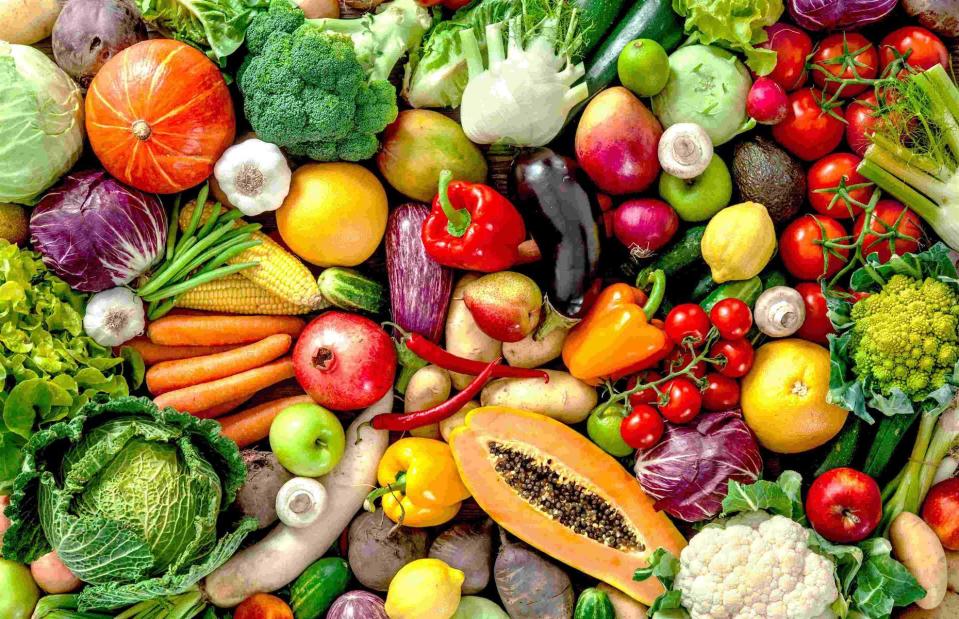
Alexander Raths/Shutterstock
The right diet can help you on your way to living a long and healthy life. Want to know just how much dairy is too much, and whether or not a vegan diet is always healthier?
Here are the foods you should be eating more of – and those to cut down on – to increase your chances of remaining happy and hearty into old age.
Avoid: ultra-processed foods

beats1/Shutterstock
Several studies have found a statistically significant correlation between the intake of ultra-processed food and the risk of early death from all causes. A 2022 study published in the American Journal of Preventative Medicine found eating a diet high in ultra-processed foods was responsible for 10.5% of all premature deaths in adults aged 30-69 years in Brazil. Ultra-processed foods are typically ready-to-eat or ready-to-heat, industrially produced foods, often with flavour enhancers and colours that make food more desirable and moreish.
Avoid: unhealthy vegan foods
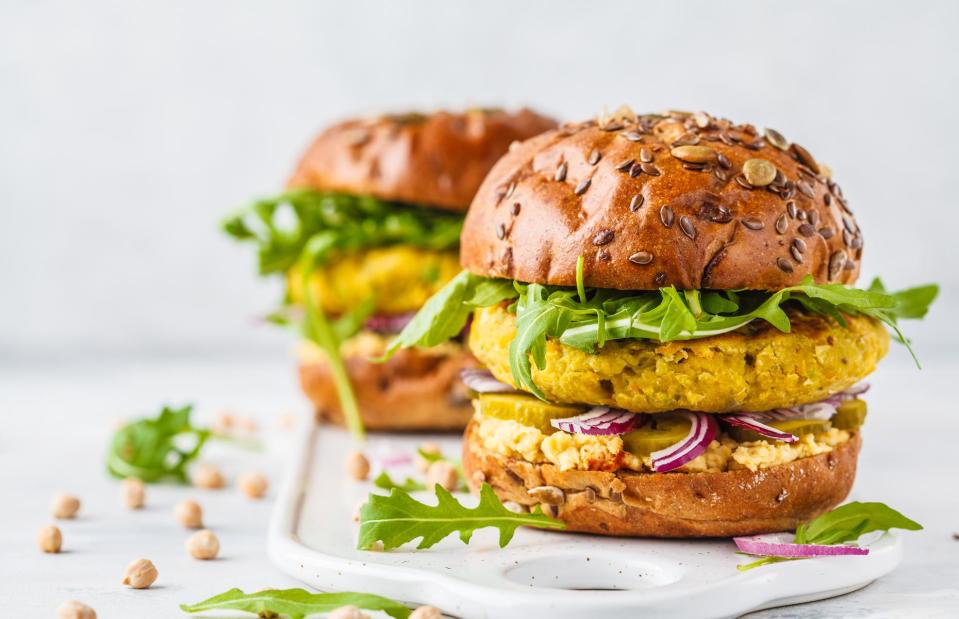
Nina Firsova/Shutterstock
A vegan diet can be extremely healthy, but that isn't always the case. A 2017 study found that a largely plant-based diet made up of whole foods was linked with the lowest level of heart disease risk. Next came a healthy omnivorous diet, while the worst for the heart was a near vegan diet, where refined grains, crisps, chips, sugar-sweetened beverages and fruit juices featured heavily.
Avoid: doughnuts

beats1/Shutterstock
Sadly, there’s no sugar coating it: doughnuts are squarely in the unhealthy, ultra-processed camp. These sweet treats are packed full of sugar and saturated fat and are high in calories. One may be relatively small but could contain the same number of calories as a large main meal, as well as providing dangerous levels of cholesterol-raising fat.
Avoid: fried potatoes
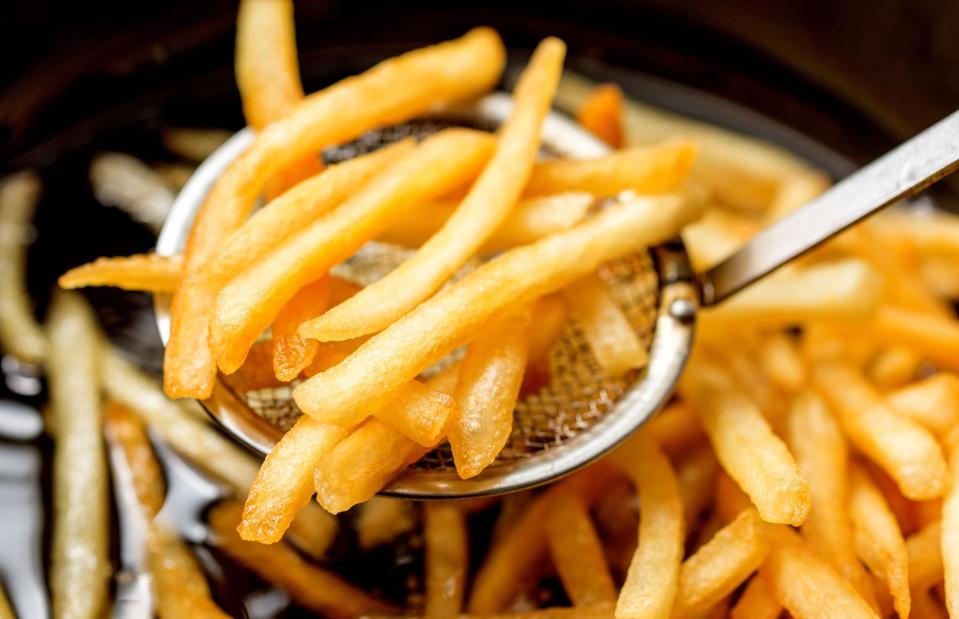
abc1234/Shutterstock
Eating fries more than twice a week was associated with a more than doubled risk of death in a 2017 study. However, the study was carried out in a US population before trans fats (the type of fat that’s most likely to contribute to cardiovascular disease) was banned in cooking oils. Fries may be bad for your waistline but there are healthier methods of cooking them available.
Avoid: burnt toast

Africa Studio/Shutterstock
Burnt toast isn’t just an annoyance – it’s a potential health risk according to the UK Food Standards Agency (FSA). Acrylamide – formed when carbohydrate-containing foods are toasted, roasted, baked, fried or grilled – is linked with cancer in animals and may be carcinogenic to humans, too. As a precaution, Britain's Food Standards Agency (FSA) says to only cook toast, roast potatoes and oven chips until lightly golden, not dark brown.
Avoid: flame-grilled and pan-fried meats

nantapop/Shutterstock
Heterocyclic amines and polycyclic aromatic hydrocarbons are carcinogenic chemicals formed when proteins such as steak, chicken and fish are barbecued over flames or cooked on a hot metal surface (in a frying pan, for example). Cut your risk by not charring the outside of your meat, instead turning it often or part microwaving first.
Avoid: ham, bacon and salami

stockfour/Shutterstock
Unhealthy ingredients in bacon, ham and other cured meats include high levels of salt and nitrite preservatives. Some scientists and politicians have called for a ban on processing nitrates, because they convert to carcinogenic nitrosamines (a type of chemical compound) in the stomach. You can find nitrite-free alternatives, but it's estimated that 90% of bacon sold in the UK contains nitrites.
Avoid: hot dogs

Africa Studio/Shutterstock
Next time you're craving a hot dog, consider if you want one enough to lose 36 minutes of your life. That's how much this processed food shortens the average person's life by, according to Michigan University scientists, who looked at the impact of more than 5,800 foods on longevity. Hot dogs curtail life expectancy because of their high levels of salt, saturated fats and preservatives. However, the scientists found you can counter that by eating healthy foods including fruits and vegetables.
Avoid: Too much dairy
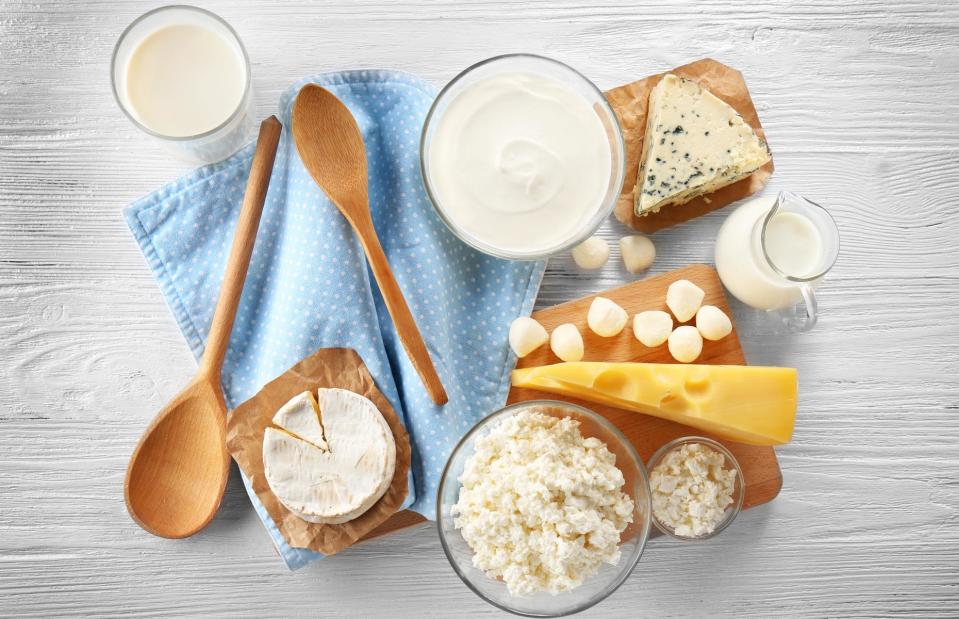
Africa Studio/Shutterstock
A study in the American Journal of Clinical Nutrition recommends consuming 26oz (750g) of dairy – about two big glasses of milk and a small pot of yogurt – daily. Dairy provides calcium and other nutritional benefits, though it can be high in fat. The study suggested large intakes of 35oz (1,000g) or more were associated with a 15% increased risk of mortality, while other research links dairy to digestive issues, skin problems and weight gain.
Avoid: salt

Miro Novak/Shutterstock
There have been several studies linking excess salt consumption to a lower life expectancy. High salt intake causes high blood pressure, leading to strokes, heart attacks and heart failure. Bread, cereal, soup, sauces, pizzas and meat products can all be high in salt, so compare labels and look for lower-salt versions, as well as avoiding adding salt to meals. In the UK, the RDA is less than 0.2oz (6g) of salt per day.
Avoid: sugary drinks

Tim UR/Shutterstock
Just one 12oz (340g) Coca-Cola can contains 1.2oz (39g) of sugar; that's more than the UK's recommended daily amount of 1oz (30g). Too much sugar raises the risk of heart disease, cancers and diabetes, while a 2017 study linked just one daily glass of sweetened beverages with a 7% increased mortality risk.
Avoid: alcohol

Slawomir Fajer/Shutterstock
In 2021, there were 20,970 deaths that were related to alcohol, including 7,556 alcohol-specific deaths, in England alone. Booze is also a factor in several cancers, including breast, mouth and oesophageal cancer. In the UK, men and women are advised to consume no more than 14 units per week (equivalent to just over a bottle of 14% ABV/28 proof wine) – and it's a good rule of thumb wherever you live in the world.
Eat: unrefined carbohydrates
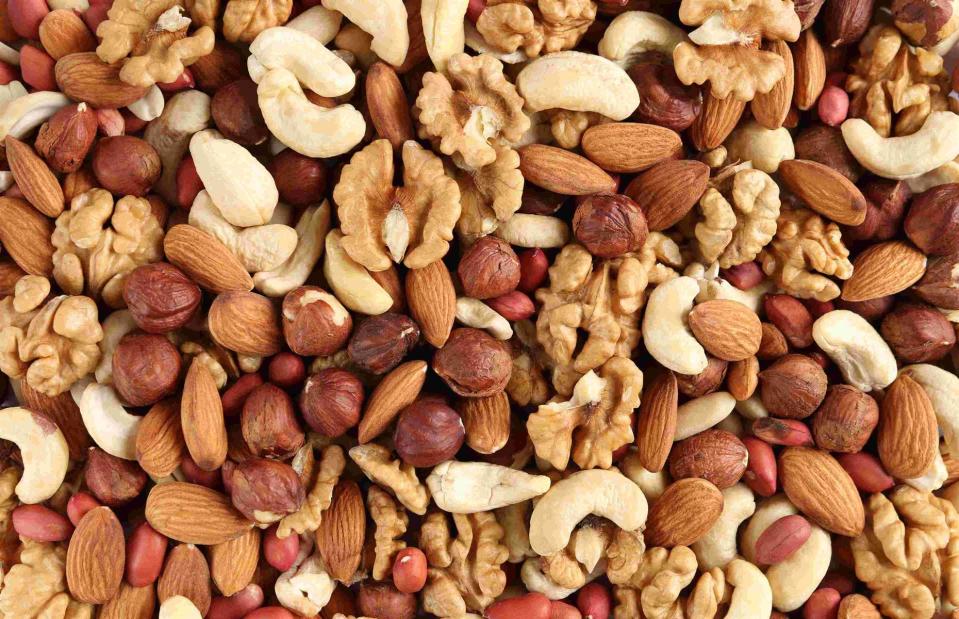
Studio Mars/Shutterstock
A 2022 study by the University of Southern California looked into ways we can live a longer and healthier life. The report, named the 'longevity diet', had a few key findings. We all know carbohydrates are our main source of energy, but when it comes to longevity, we need to look to unrefined carbohydrates. That includes fruits and vegetables, whole grains, nuts, seeds and legumes. They all release their energy slowly, which helps to regulate blood sugar levels.
Eat: plant-based protein
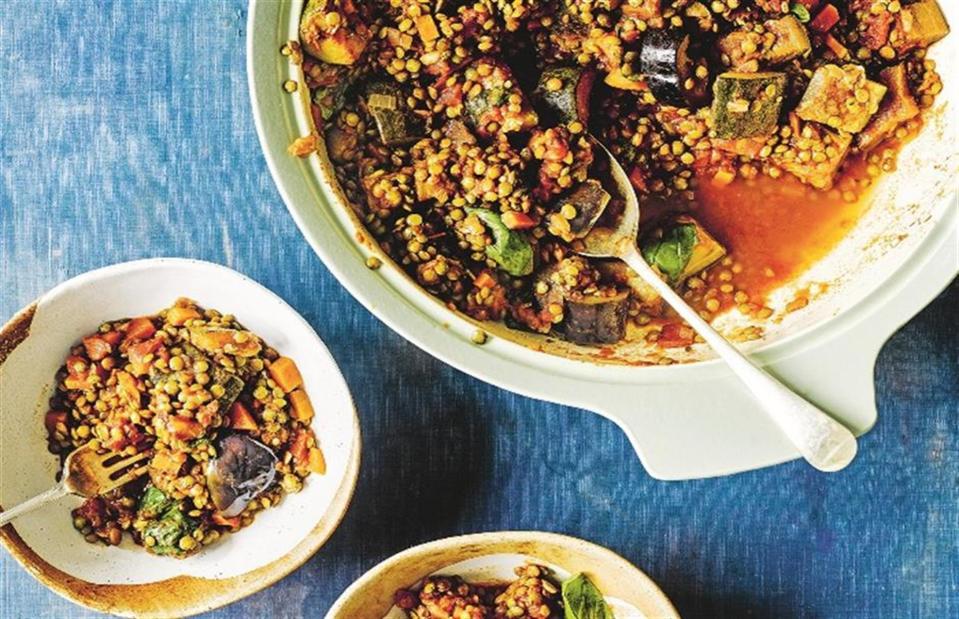
Haarala Hamilton/Pavilion Books
The 'longevity diet' also suggests we should limit animal-based protein and switch to plant-based options. Wondering how to get protein from plant-based sources? Look to include more foods like lentils, chickpeas, beans, mushrooms, spinach, beansprouts, sweetcorn, broccoli, asparagus and Brussel sprouts in your diet. Try using plant-based protein in place of meat in some of your favourite dishes.
Eat: plant-based fats
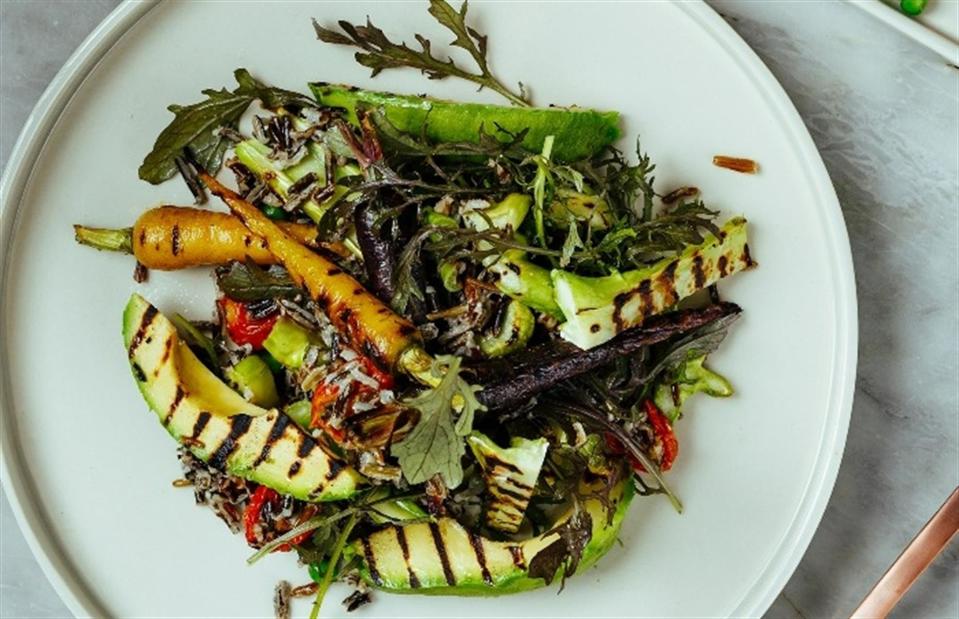
Alex Head for Eat and Drink Festival/loveFOOD
Plant-based fats, including those found in nuts, seeds, coconuts and avocados, are beneficial to a healthy diet and should make up around 30% of your calorie intake, according to the 'longevity diet' findings. Try cooking with rapeseed oil and using extra virgin olive oil in your salad dressings for starters.
Eat: at the right time
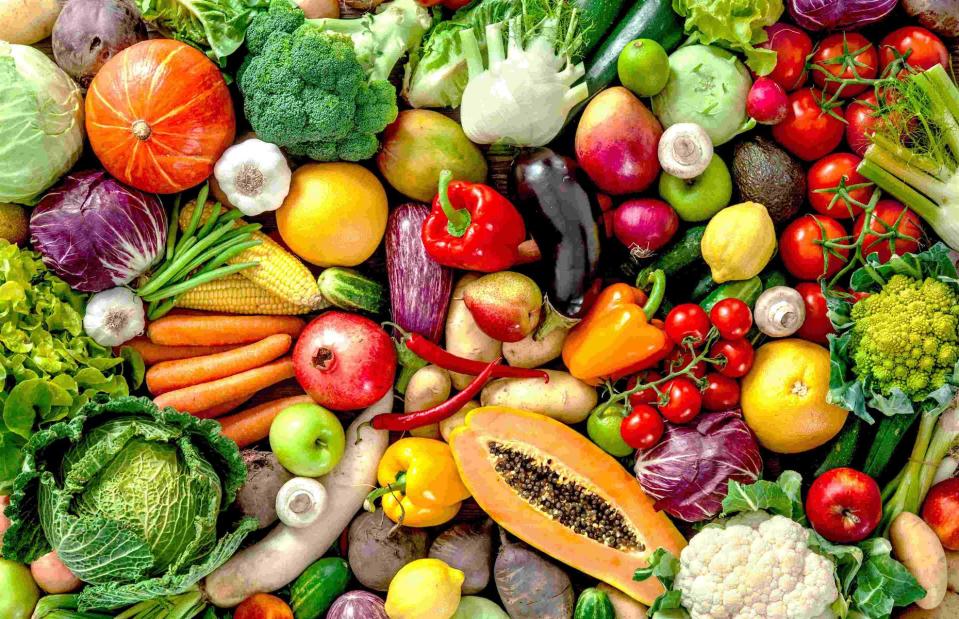
Alexander Raths/Shutterstock
The 'longevity diet' report also suggests the day’s meals should be eaten within a 12-hour window, which would allow for a daily period of fasting. On top of that, a five-day cycle of fasting every three to four months could apparently help to reduce insulin resistance, blood pressure and other possible health issues.
Eat: leafy greens
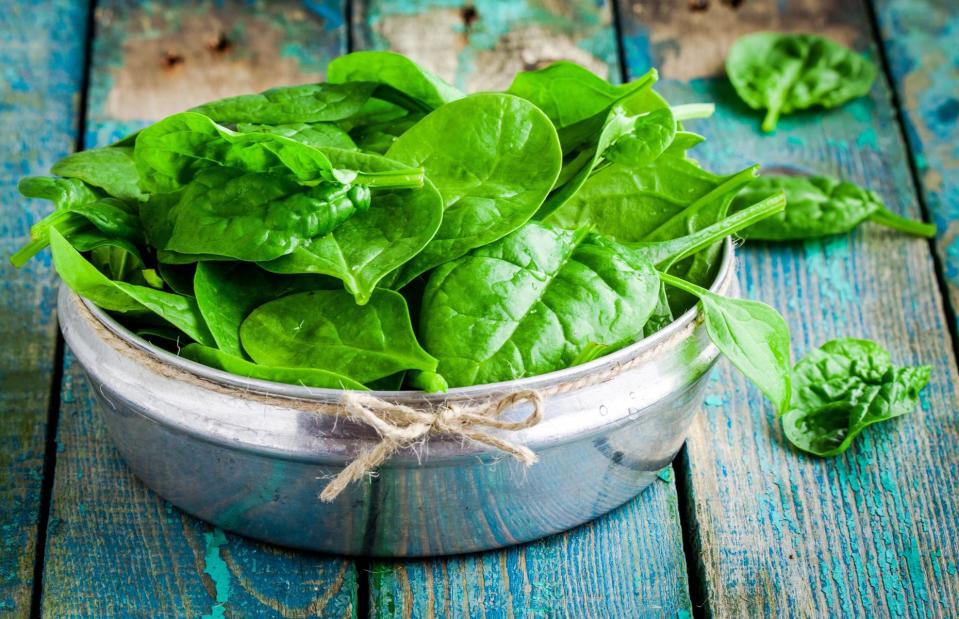
Ekaterina Kondratova/Shutterstock
Eating more vegetables in general correlates with better health outcomes and increased longevity. But a 2017 study in the International Journal of Epidemiology picked out leafy greens (for example, spinach, broccoli and kale), salads and cruciferous (cabbage family) veg as specifically linked with reduced cardiovascular disease and all-cause mortality. Cruciferous veg were also linked with a lower overall cancer risk.
Eat: pulses
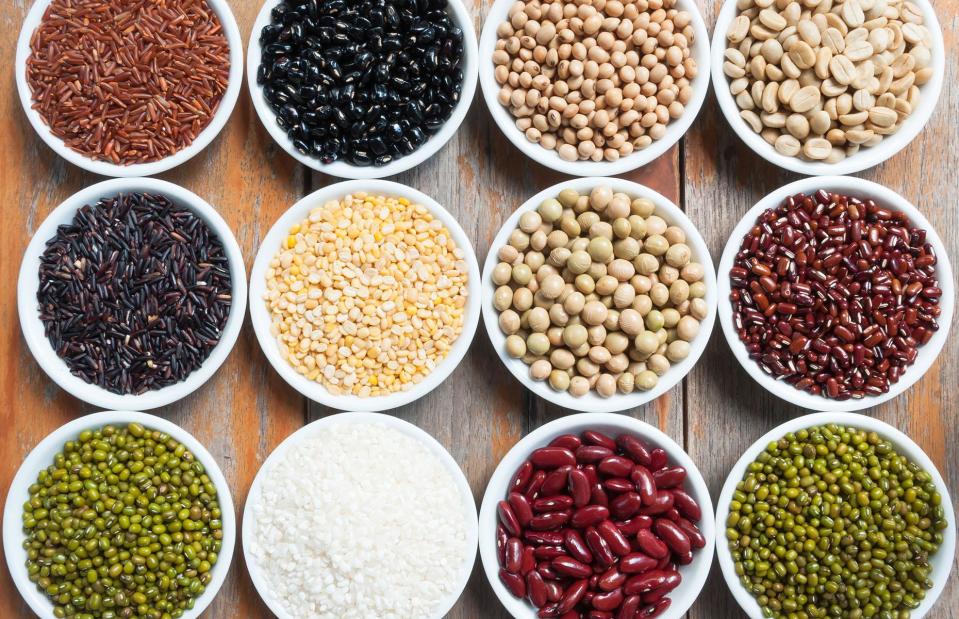
Peangdao/Shutterstock
According to a large analysis of scientific studies in the American Journal of Clinical Nutrition, eating pulses (chickpeas, beans and lentils) is also associated with a lower death rate. The risk of all-cause mortality decreased by 16% when intake of pulses increased to 5oz (150g) a day – that’s between half and two-thirds of a can of drained beans. Pulses contain protein, fibre, iron, zinc, folate and magnesium.
Eat: fruit
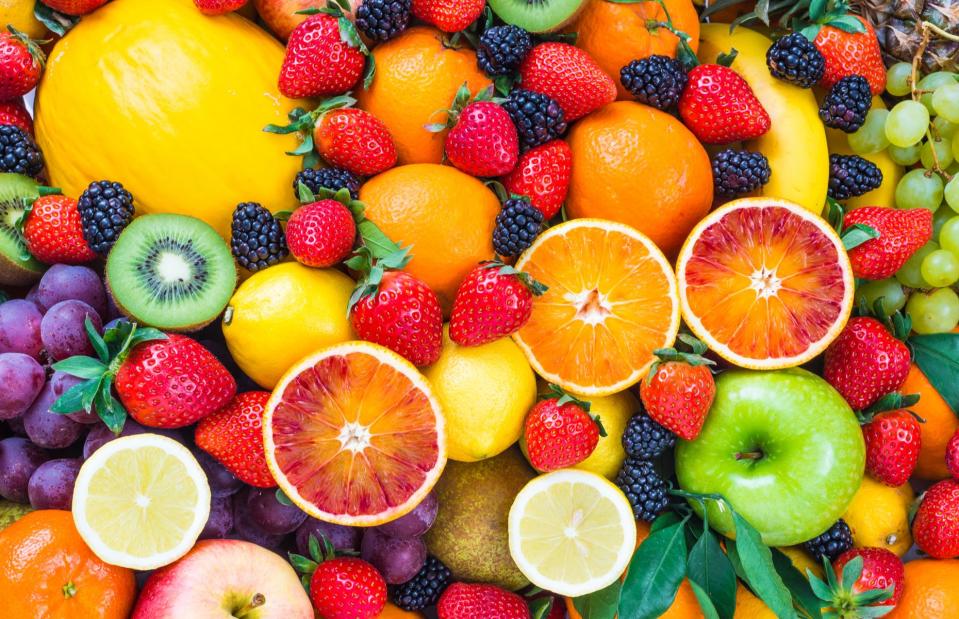
leonori/Shutterstock
A 2017 study, funded by the Bill & Melinda Gates Foundation, suggested that 82 million deaths globally could be attributed to a low intake of fruit. The risk of all-cause mortality decreased by approximately 10% when fruit consumption was around 8.8oz (250g) a day – about three small portions. Other studies have found a 10-25% lower rate of all-cause mortality comparing diets high in fruit to those lacking. Blueberries are particularly rich in anthocyanosises, which are potent antioxidants, so make sure your fruit intake includes these.
Eat: spicy food
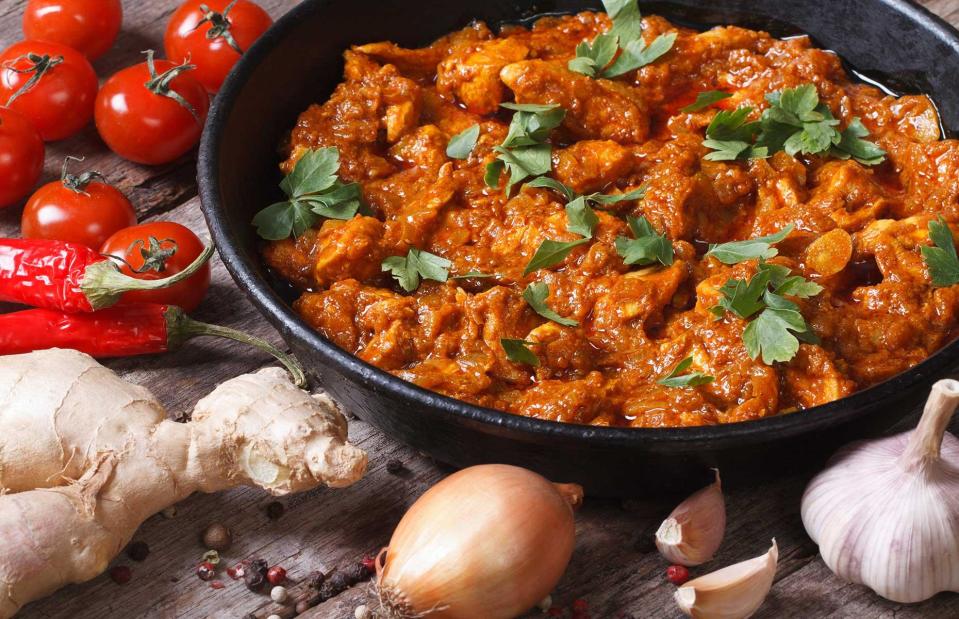
AS Food studio/Shutterstock
A study of nearly 500,000 people in China found those who ate spicy food six days per week were 14% less likely to die early than those who consumed it less than once a week. Spicy food has also been linked to lower blood pressure and good gut health. However, research is conflicting, also linking spice to digestive issues for some people.
Eat: fibre
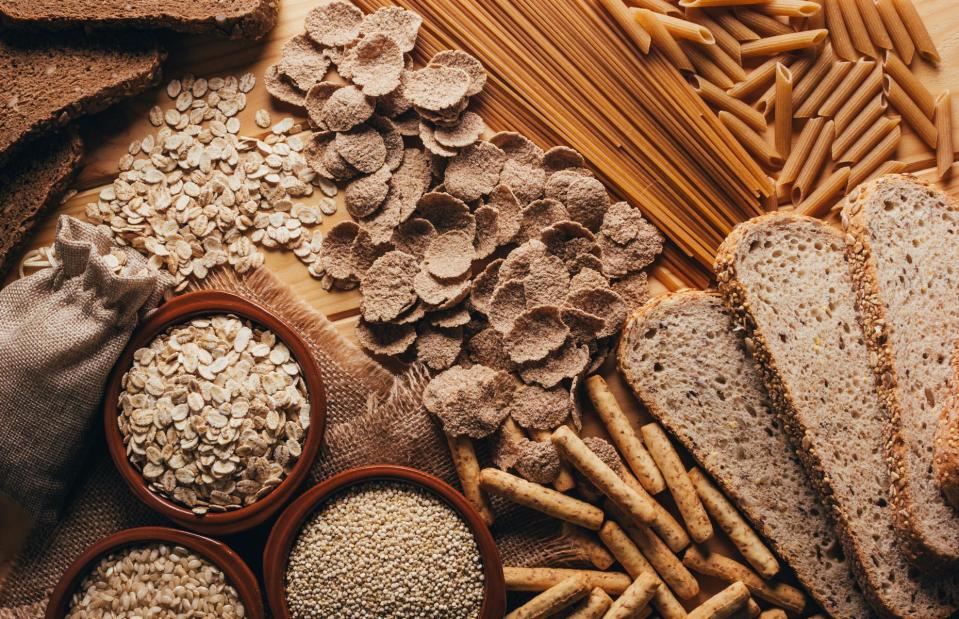
Krzysztof Slusarczyk/Shutterstock
A recent study published in Clinical Nutrition found that dietary fibre from whole grains, cereals and vegetables was associated with a reduced risk of all-cause mortality, while dietary fibre from nuts and seeds reduced the risk of cardiovascular-related death by 43%.
Eat: nuts
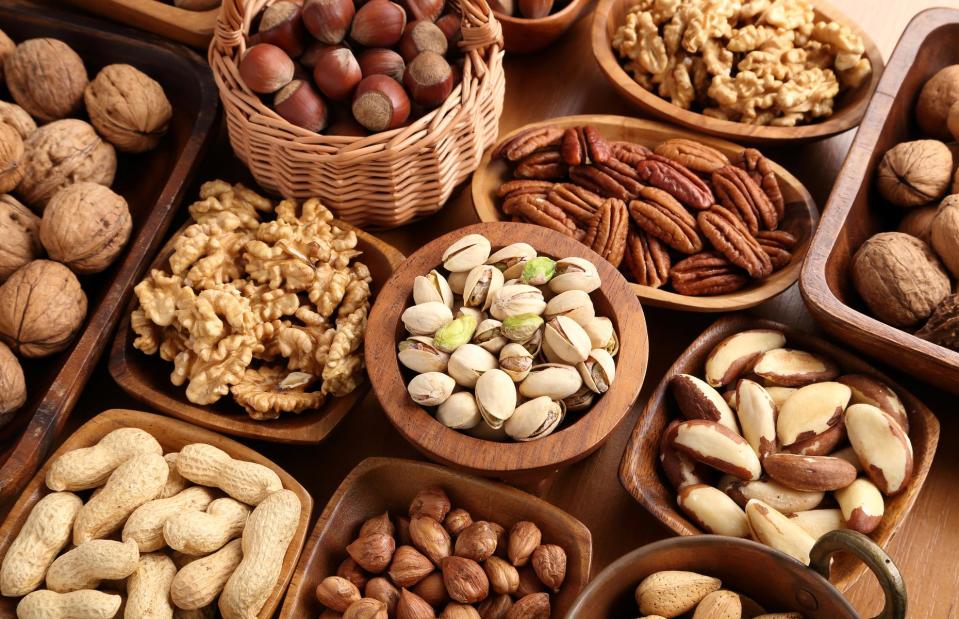
nehophoto/Shutterstock
Several studies link regular nut consumption with a lower risk of heart disease and of dying from any cause – this includes peanuts and tree nuts (almonds and walnuts, for example). Around one small handful, at least three times per week, is all that’s needed. Remember, though, that most nuts have about 150-200 calories per handful, so you don’t want to overdo it.
Eat: peanut butter and jam sandwiches

Brent Hofacker/Shutterstock
Nuts are so good for us that even that classic US comfort food – a peanut butter and jam sandwich – can contribute to longer life. A Michigan University study calculated that eating a PB&J sandwich added 33 minutes to a person's life. Use whole wheat bread for extra health benefits.
Eat: Omega-3s
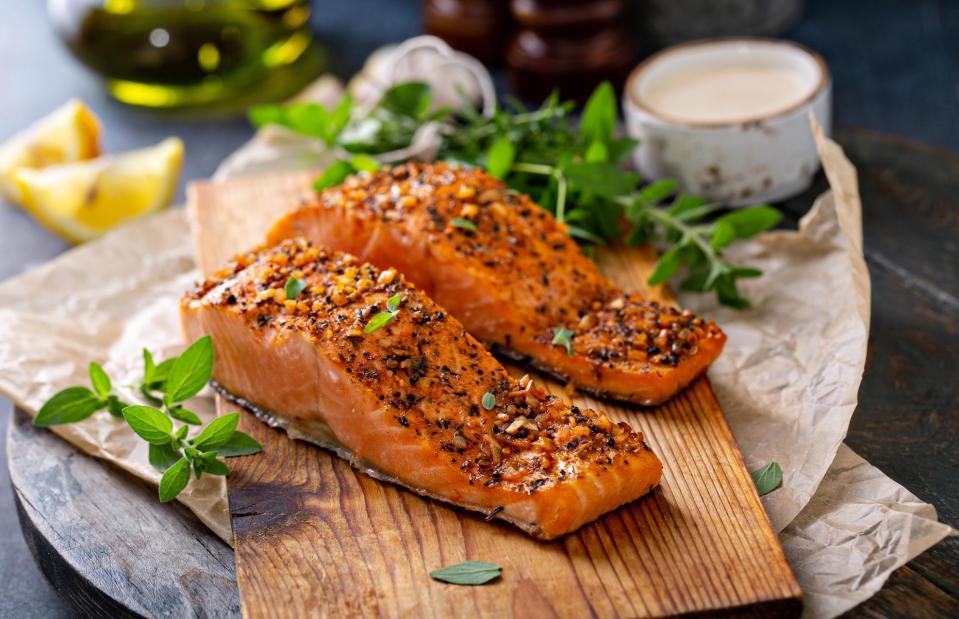
Elena Veselova/Shutterstock
Results from the 2018 NIH-AARP Diet and Health Study, held by America's National Cancer Institute, showed that men who consumed the most Omega-3s (found in fish, seafood, nuts and plant oils) reaped a 15% reduction in cardiovascular mortality; for women, the figure was 18%. Several studies since have reported a link between Omega-3s and lower all-cause mortality, as well as boosted heart and brain health.
Eat: carbs
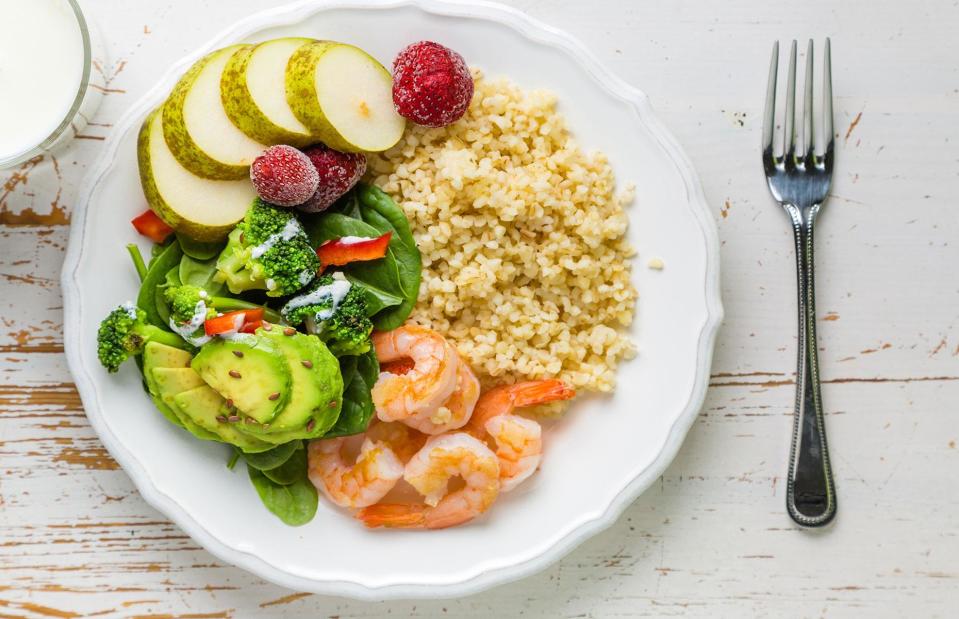
Oleksandra Naumenko/Shutterstock
Many of us are obsessed with low-carb diets, but a 2018 study published in The Lancet Public Health journal found that both low and high-carbohydrate diets are linked with an increase in mortality, while moderate consumers of carbohydrates had the lowest risk. A recent study published in Science Daily also found that extreme dietary habits involving carbohydrates and fats affect life expectancy. It seems carbs in moderation is best.
Now find out which foods you should include in your diet to boost your immunity
Last updated by Dominique Ayling.


